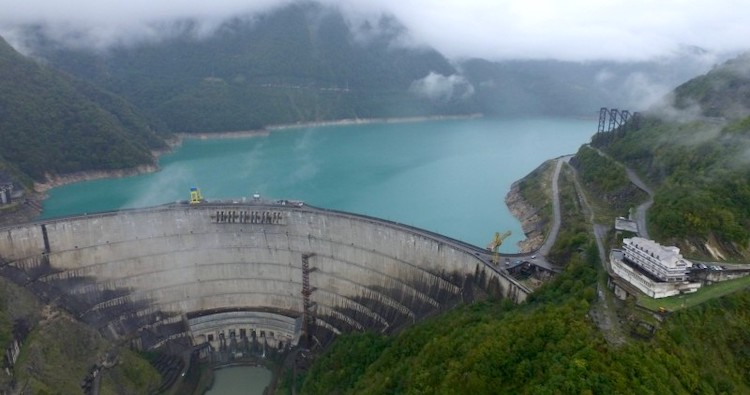Democracy Research Institute: ‘bitcoin mining farms creating energy crisis in Abkhazia’

The Democracy Research Institute (DRI) says that bitcoin mining farms are creating an energy crisis in Georgia’s Russia-occupied Abkhazia region. Photo: engurhesi.ge.
‘Bitcoin mining farms are creating an energy crisis in Georgia’s Russia-occupied Abkhazia region’, says the Democracy Research Institute (DRI).
DRI notes that even with the completion of the rehabilitation works on the Enguri HPP, the energy crisis could not be improved in Abkhazia due to the bitcoin mining farms.
In its official statement DRI says that the free supply of electricity to Abkhazia from the Georgian power system, in particular from the "shared" Enguri HPP, has prospered this sector of the shadow economy and turned it into a real disaster for the region.
In addition to the fact that the amount of electricity consumed by mining farms causes a supply collapse and imposes an immeasurably large social burden on ordinary consumers, it also hinders the production and expansion of other types of economic activities”, reads an official statement of DRI.
DRI says that on the one hand, the power institutions are unable to regulate the illegal business of bitcoin production due to the flexibility of this sector, and on the other hand, the corrupt factors of such flexibility become impossible to be addressed for the de facto authorities.
Due to the scale of corruption, the proceeds from the bitcoin production are divided between the owners of the illegal business, the representatives of de facto authorities, and its law enforcement agencies”, says DRI.
In its statement DRI also says that privatization of the power supply is on the agenda, which seems to be in Russia’s interests, but is delayed by the de facto government of Abkhazia.
Currently, the Abkhazia power system is managed by the so-called Chernomorenergo – a closed state-owned joint-stock company, which is reportedly planned to be bought by Russia. However, before that, the de facto authorities of Abkhazia, plunged into an energy crisis, are unlikely to find a solution or get a promised full gasification project that would alleviate the social cost of the crisis.
Read the full statement here.
 Tweet
Tweet  Share
Share